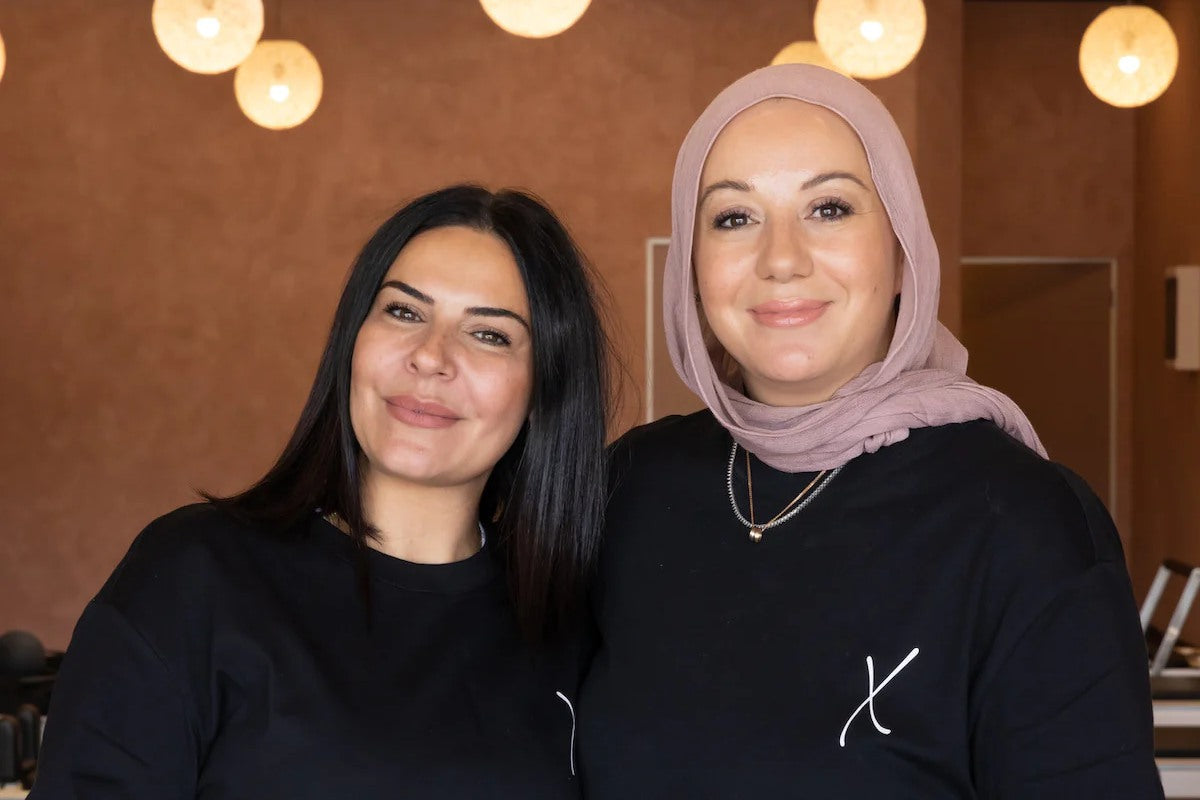Article: How to engage in deeper conversations, with Intimacy Coach, Najiha Basheer.

How to engage in deeper conversations, with Intimacy Coach, Najiha Basheer.
Engaging in deeper conversations with our spouses can come naturally for some, and can be an ongoing struggle for others - weighing down on the relationship, leaving those involved feeling misunderstood and neglected.
We spoke to Deep Conversations and Intimacy Coach, Najiha Basheer, about the best practices to help navigate these often dreaded conversations that feel awkward and uncomfortable, simply because we haven't been exposed to healthier ways of having them.

Tell us about what you do and how you help people navigate deeper conversations?
I founded Deep Conversations Coaching to help women, and couples have conscious connection in their marriage through deep and open conversation. In our sessions, we always start working with the inner self and then work outwards to heal the relationship. This means really zoning in on understanding our view of the world, learning to accept and shifting our mindset and how we communicate, listen and build peace in our homes.
I dream of a world where couples talk to each other, really talk to each other, giving each other their attention to accept, understand, support, empower, hold space, love, and take action to build a safe and loving relationship.
What does it mean to have 'deeper conversations'?
It means to go beyond surface level conversations where one talks to understand and connect with the other person on a deeper level.
Why is it essential that we have these deeper conversations in our relationships?
Deep conversations are essential in marriage to know the other person’s needs, dreams, triggers, goals, fear, beliefs, boundaries, and values. When we talk to understand, we learn to accept and love them for who they truly are. It helps couples bring down their guards, ask for help and really lean into each other.
Without deep conversations, they are just two people sharing lives, spaces and bodies, while missing out on the true essence of a marriage relationship.
What can we do if the person that we seek to have deeper conversations with doesn't feel the same way?
This is a question that I get very often in my sessions. I would start by exploring how you do deep conversations. How healthy is the start up to the conversation? What is the tone of the conversation - is it critical or appreciative? What are the energies in the relationship? What core needs aren’t being met healthily? What are your beliefs about marriage and communication? What are your coping mechanisms?
There is so much one person can do alone to bring change in their relationship.
I have to be honest, at some point, after working on oneself and the relationship for a while (which can be different durations for everyone), if the other spouse refuses to connect back, there will come a time when he/she has to be realistic and question if it is worth staying in the relationship and what is the best plan for them moving forward.
Should we plan before engaging in deeper conversations? (Set goals/ talking points)
Yes and No. It would be weird and exhausting to get a pen and paper and write a plan every time you want to have a deep conversation.
In a highly emotional conflict, I teach clients to take time out and write down their emotions and internal talk and then go back to the conversation once they feel regulated and have clarity.
In a relaxed connection conversation, learn to slowly lower your guard and lean in to connect physically by hugging, holding hands or placing a hand on the other person’s thigh. Open up, try sharing deeply and see how your spouse responds. If they respond in a way that is hurtful or disturbing to you, accept that that is the best they know and teach them to respond in a way that is supportive to you.
Remember that this is all new for you and your spouse, so be kind.
What are some conflict resolutions or conversation shifters if conflict arises?
If you are highly emotional, feeling sad or angry, keep your mouth shut.
I can’t emphasise enough on the importance of healthy silence in marriage. Communicate that you are upset and that you need some time to process your emotions, walk away if you need to and write down all that upset talk in your head that you want to scream at your spouse.
Do not ignore or suppress them as it will build resentment in you.
Once you’ve got your thoughts out, read it again. Now sift through the blaming and shaming and identify what the core problem is, why it means so much to you and what support or action you want.
Many of us feel the need to solve the problem as soon as it happens. We really don’t need to do that. Slow things down - your response, your reaction, your thoughts, your breath, your heartbeat and then slow it down further.
Your brain is only ready to problem solve when your heartbeat is normal.
What thoughts, Quranic Verses, Hadith would you like to leave the reader with?
“..and live with them in kindness…” (4:19)
Write this down in bold and hang it your homes if you need to imagine how beautiful our homes would be if we all lived by this Ayah consistently.
Stop waiting for other to change before you start your healing ang growth journey. Put yourself on your list and take care of your health- mental, physical and spiritual.
Learn your rights. Stop letting society and social expectations dictate how you live your life. Accept your story and turn your mess into your message. Build the courage to really talk to your spouse, your kids and the people you love.
Remember, Allah (swt) placed events in your life for a reason. Grieve them if needed, and then look for what you were meant to learn from it.
You are important because Allah chose to create you.
I pray that Allah blesses each and every one of you, your families and your homes with peace, kindness and love.
Intimacy Coach Najiha Basheer, is the founder of Deep Conversations Coaching and helps families build deeper connections. You can connect with Najiha here.

